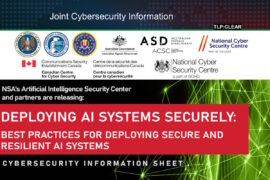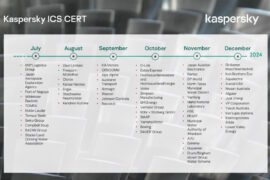UK rolls out its ‘Defence Space Strategy’ to bolster national interests in space

The U.K. government released its ‘Defence Space Strategy’ that works towards operationalizing the space domain at pace. It sets out the government’s vision for ‘defence’ as a global player in the space domain and expresses how its Ministry of Defence (MOD) will deliver the ‘protect and defend goal’ through space-related capabilities, operations, and partnerships.
Space and cyber have now been “recognised as operational domains in their own right and Defence must take advantage of this, integrating our capabilities so that they work together seamlessly across all domains,” according to the Defence Space Strategy document. “Space is a key enabler for Defence operations and is now an operational domain in its own right (alongside cyber, maritime, air and land). It is also fundamental to our aspiration to integrate across those five domains,” it added.
From space, “we can deliver global command & control, communications, intelligence, surveillance and reconnaissance, precision navigation, and more,” Ben Wallace, U.K.’s Secretary of State for Defence, wrote in the document. “Adversaries understand this reliance and are increasingly able to exploit vulnerabilities, threatening our strategic stability and security,” he added.
Adversaries understand “our reliance on space services and major powers are increasingly able to exploit the vulnerability of satellites and degrade the UK’s access to space, threatening our strategic stability and security,” the document said. “They can employ a wide range of capabilities, including the use of Electronic Warfare (EW), cyber capabilities, Directed Energy Weapons (DEW), Co-orbital Anti-Satellite (ASAT) weapons and Direct-Ascent ASAT (DA-ASAT) missiles to intercept and exploit satellite communications and threaten and potentially destroy our space systems,” it added.
In particular, cyber threats can deny, disrupt or deceive satellite data, and the increasingly pervasive nature of adversarial space-based Intelligence, Surveillance, and Reconnaissance (ISR) is affecting how military operations are conducted more than ever, the document identified. “Our inaction risks undermining the significant investments we have made in capabilities reliant upon the space domain and we need to improve our national sovereign resilience and competitiveness in this congested and contested environment,” it added.
The Defence Space Strategy details how the MOD “will support national efforts to become a meaningful actor in space, able to secure UK interests alongside those of our allies and partners, to preserve strategic advantage, and contribute to a safe, sustainable, secure and accessible environment, now and in the years to come.”
The document also outlined that in response to adversaries’ increasing offensive capabilities in space, “we require credible deterrence and response options to protect and defend our national interests in and through space. This includes a coherent and responsive intelligence-focussed strategy, effective operational Space Control capability and resilient on-orbit, terrestrial and cyber infrastructure.”
“We understand that our credibility is not simply limited to capability; it must include our international alliances, commercial partnerships and the way in which we operate in the domain,” the Defence Space Strategy added.
The Defence Space Strategy directly supports the integrated National Space Strategy that recognized a massive reliance on space for critical services that impact daily on civil, commercial, and military sectors. These include, but are by no means limited to, global communications, secure banking transactions, transport, meteorology, and navigation.
At a time when the U.K.’s MOD “is poised to deliver a digital backbone to the country’s armed forces, it is through space that activities such as secure global communications and navigation, mission planning and tracking of hostile activity – to name a few – can take place,” John Young, Solution Lead for Space at BAE Systems Digital Intelligence, wrote in a company blog post. “No wonder space is now an operational domain in its own right – along with air, land, maritime and cyber,” he added.
“It was against this background that the UK government recently unveiled its long-awaited Defence Space Strategy, setting out plans to operationalise the space domain. The document couldn’t have been timelier,” Young wrote. “No longer a contest just for super powers, a great many nations are today jostling for celestial advantage. Our constellation of satellites and space systems provide abundant targets for cyber-attacks and other sub-threshold activity by adversaries,” he added.
In May last year, the U.S. Cybersecurity and Infrastructure Security Agency (CISA) formed a Space Systems Critical Infrastructure Working Group to identify and develop strategies to minimize risks to space systems that support the nation’s critical infrastructure. The working group aimed to improve the security and resilience of commercial space systems. It also worked on identifying and offering solutions to areas that need improvement in both the government and private sectors, and develop recommendations to manage risk to space-based assets and critical functions.
Last week, an Airbus Cybersecurity executive said that space-based systems need to be protected from cyber attackers as dependence on them grows. “Any organisation that deploys satellites or relies on space-based systems can be affected. It’s a common misconception that cyber attacks on satellites only affect governments or military and security forces. In fact, our whole society depends on space-based systems,” he added.










